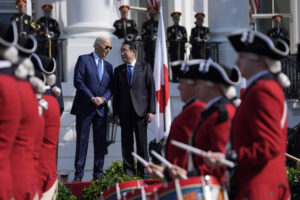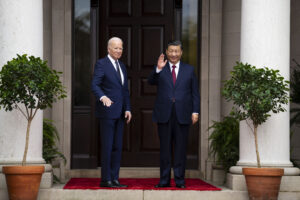Incredibly, Global Happiness Is on the Rise
Despite the economic crisis, people's contentment is increasing in more countries than where it's falling. The United Nations' 2013 World Happiness Report provides evidence that the past five years have seen a marked improvement in international well-being, but not all nations are as merry as others.
Despite the economic crisis, people’s contentment is increasing in more countries than where it’s falling. The United Nations’ 2013 World Happiness Report provides evidence that the past five years have seen a marked improvement in international well-being, a measure that is becoming increasingly significant to policymaking, or at least the organization would hope so. The report aims to inspire world leaders to place more emphasis on people’s happiness than on economic growth, and takes into consideration the following six factors, according to the U.N. Sustainable Development Solutions Network: real GDP per capita, healthy life expectancy, having someone to count on, freedom from corruption, perceived freedom to make life choices, and generosity.
About 60 of the 150 countries surveyed showed an increase in happiness while 41 others demonstrated a decrease. It will come as no surprise that Syria was at the bottom of the list of happiest nations given the gruesome civil war it has suffered the past couple of years. And perhaps less shocking is that Denmark, Norway, Switzerland, Netherlands and Sweden topped the list, whereas the United States came in at 17th and China 93rd. But not all the rankings are so predictable, Slate explains.
The increased happiness is driven by jolly Latin America and substantially rosier attitudes in Africa…. In position six is Canada and then it’s Finland, Austria, Iceland, and Australia. In general richer countries are happier (hence the dominance of Nordic and Anglophone countries) but there are some interesting outliers. Brazil is happier than France or Germany. Costa Rica and Panama are happier than the United States. Of the ten least-happy countries, nine are in Africa and the other is Syria.
The report comes to the conclusion that chronic mental illness is one of the major causes of unhappiness the world over, and therefore, sound mental health policy is essential to sustaining good spirits and good health.
—Posted by Natasha Hakimi
Your support matters…Independent journalism is under threat and overshadowed by heavily funded mainstream media.
You can help level the playing field. Become a member.
Your tax-deductible contribution keeps us digging beneath the headlines to give you thought-provoking, investigative reporting and analysis that unearths what's really happening- without compromise.
Give today to support our courageous, independent journalists.






You need to be a supporter to comment.
There are currently no responses to this article.
Be the first to respond.